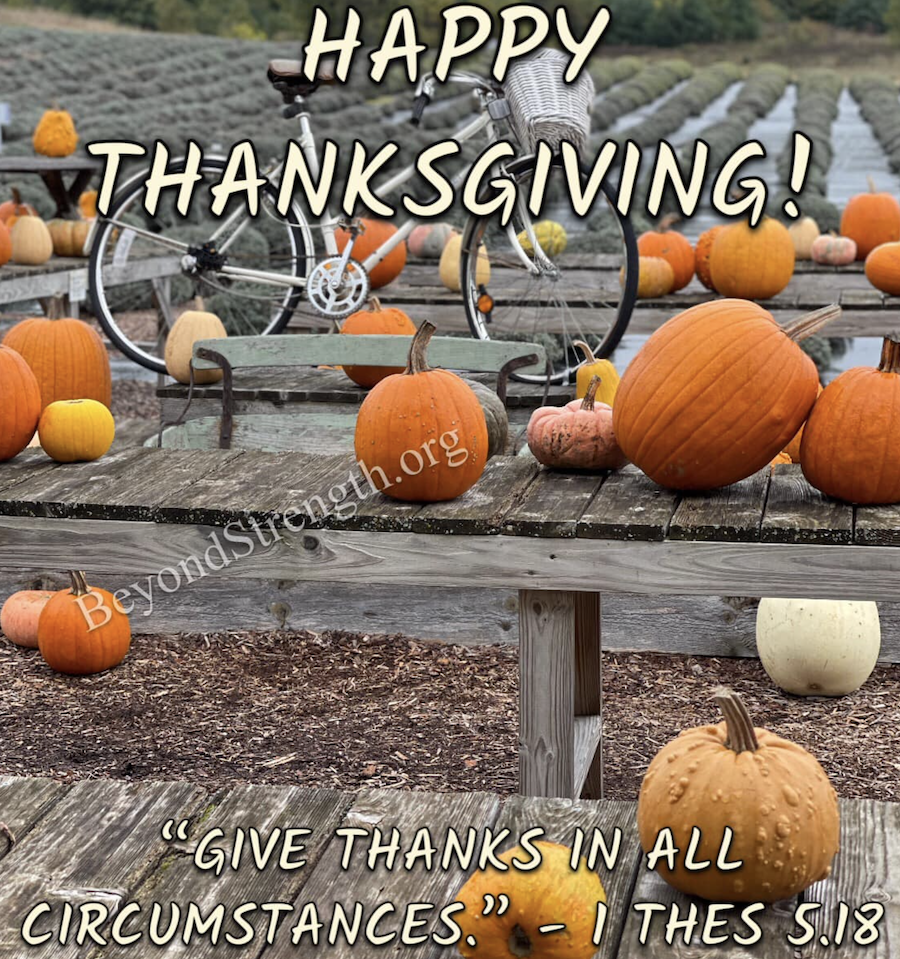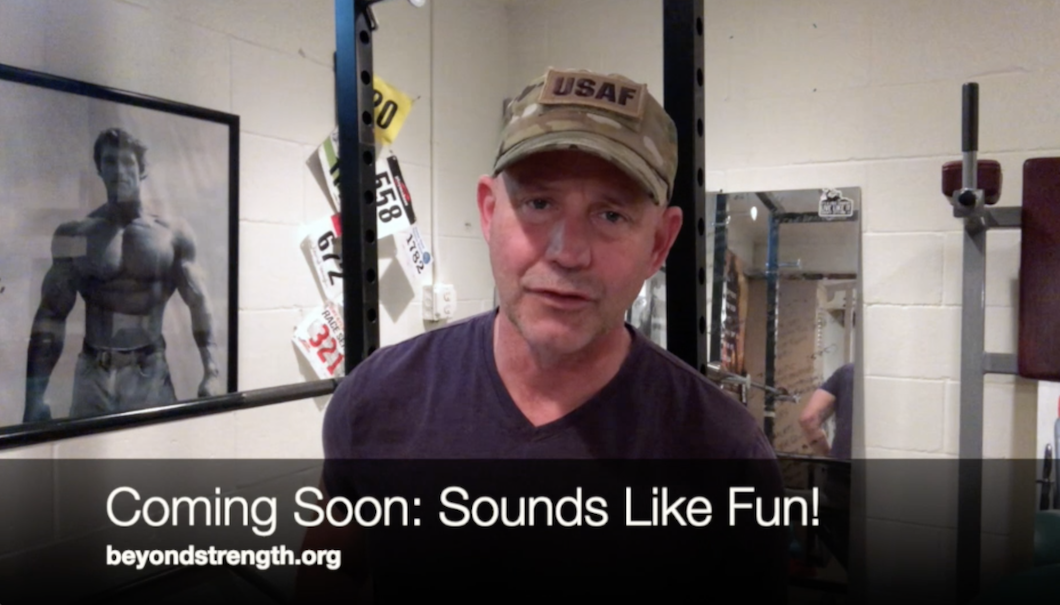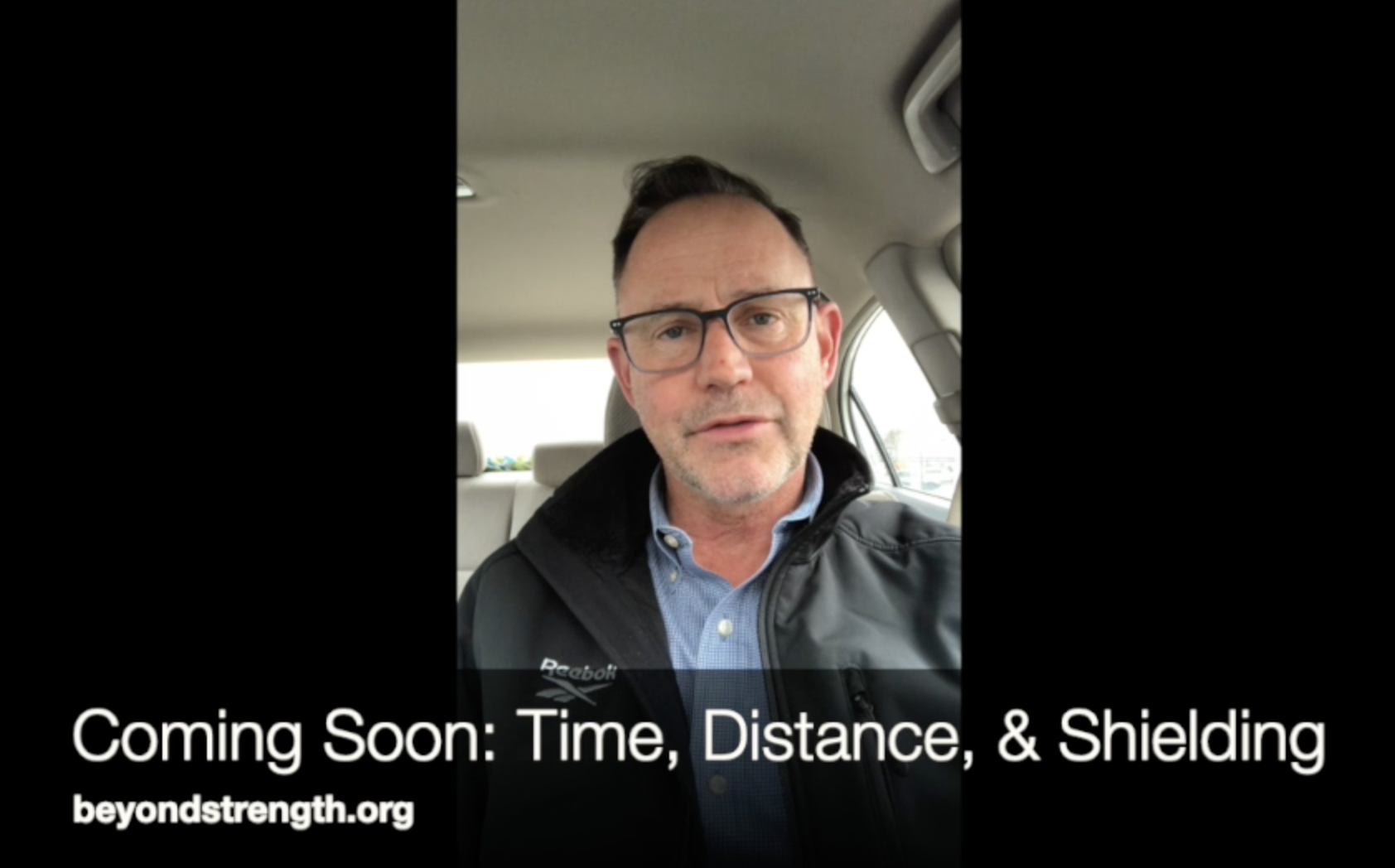


Vultures Will Gather
I recently read a passage in the Gospel of Matthew I struggled to make sense of, which is not unusual. There are many things I don’t yet understand about God and his word. But I’m okay with that…a divine Creator completely understood within human reason wouldn’t be much of a god, anyway. A. W. Tozer seemed to relate a similar issue when he wrote, “Evils…will seem evils only because we cannot read the secret script of God’s hidden providence.”1
The passage contained this verse: “Wherever there is a carcass, there the vultures will gather.” (Matt. 24.28)
Coincidentally and perhaps not-so-completely-unrelated, I first learned about Dia de los Muertos (Day of the Dead) in college Spanish one long-ago fall semester. As I write this it’s Halloween time. I’m embarrassed to admit I used to confuse the two very different holidays.
A traditionally Mexican holiday celebrated within the first days of November, Dia de los Muertos is a time-honored observance of both life and death, abundant with bright colors, music, food, drink, and expressions of love and respect to honor the souls of deceased loved ones.
On the other hand, if ever existed any redeeming aspect of honoring saints at Halloween, that’s largely devolved to themes of frightening costumes, dubious behavior, witches, mayhem, and yes…death.

Watch any old western and you’ll learn circling buzzards mean carcasses nearby. There isn’t space here to deep-dive my theological confusion, but it appears Matthew’s passage, like Luke 17, points to the end times and coming of God’s Kingdom. The widespread carnage, stench of death, and vultures everywhere will evidence the judgment.
But wildfowl aren’t the only creatures attracted to death or affliction. Metaphorically, human vultures are often busy circling, fascinated with the macabre and eager to prey on the downtrodden. I once had to fight off a vulturous hoodlum bent on ridding an unconscious victim of his wallet, even as paramedics and I worked to save his life.
And these familiar buzzards: ambulance-chasing attorneys lining their pockets with the currency of others’ misfortune; slippery televangelists milking the last few dollars of unsuspecting God-seekers; heirs historically uninvolved, conspicuously motivated when estates are settled; rubbernecking gore-mongers jamming traffic and compounding mayhem, instead of minding their own driving; or streaming fanatics unable to find anything as entertaining as bingeing the latest true crime show or similar exploitation of human anguish.
Incorrect assumptions, uninformed assertions, irresponsible gossip, careless rumors, and outright slander are especially hurtful, and too often the hallmarks of human vultures in our lives. Unlike the telltale orbit of winged predators, these ‘birds’ are especially hurtful and negligent because their plundering too often happens behind the backs of their troubled, downcast, or otherwise vulnerable prey.
Fortunately, not all are quite so iniquitous. Like colleagues circling your office or siblings dive-bombing your bedroom ready to snatch whatever goods and chattels might be up for grabs upon your departure. Of course, it’s possible you’ve just overstayed your welcome and they’re just waiting for the smelly log jam of ‘dead wood’ to clear…
Vultures will gather. So what’s a cadaver to do?
- Live. One sure way not to be a target of vultures is to not be dead. Be physically, mentally, emotionally, and spiritually alive. Stay busy. Exercise, go for walks, read, pray, listen to music, sing, dance. Enjoy life and appreciate God’s beauty in people and the world.
- Love. Few people, even buzzards, wake up in the morning determined to hurt others. Maybe they’re oblivious to the pain they cause, or they just don’t care. Either way, that’s their issue…not yours. We have no idea what may be going on their life or the personal demons they fight. Maybe it’s divorce, addiction, abuse, illness, death of a loved one. Instead of being just another angry bird, be kind and compassionate. There’s a local business nearby that routinely employs people down on their luck or with checkered pasts. Affectionately referred to as ‘reclamation projects’, they help people when everyone else has given up on them. Second chances are part of their organizational culture and something we can all learn from. Everyone stumbles. Instead of throwing the ‘baby’ we once esteemed out with the bathwater, remember and appreciate all the positive things they’ve done. Just love them and give them the chance to keep doing great things.
- Laugh. Don’t take yourself so seriously…laughter is good medicine! Jump in a pile of leaves, play games, dress up for Halloween. A youthful heart beats strong and crow’s feet are much more attractive from smiling than stress.
- Learn from the goose. Buzzards are solitary, opportunistic predators. Geese, on the other hand, fly together, share responsibility for leading the flock, and care for one another when sick or wounded. That’s leadership 101…and pretty good relationship advice, too.
- Lean into God’s hidden providence. It’s easy to set our faith aside when things are going well, but the time to become acquainted isn’t in the midst of catastrophe. Seek to know God better now, and more will be revealed; in good times and bad. Walk by faith, not by sight…God is in control.
Get Strong. Be Strong. Stay Strong.

https://www.nationalgeographic.com/travel/article/top-ten-day-of-dead-mexico
https://www.history.com/topics/halloween/history-of-halloween
1Jeremiah, David (2014). Quest devotional seeking God daily. San Diego, CA: Turning Point.

Climate Change
A recent sermon at church was a continuation in Hebrews 12. I had my ‘travel Bible’ with me that day. It’s been all over the world with me, and is not unlike me: simple, old, and tattered. Edges frayed, falling apart, and the binding is held together with duct tape. It’s time for a change.

One theme of Hebrews 12 is restructuring one’s life around the ongoing purposes of God. In other words, to organize differently, convert, change. The author also writes of running the race of faith with perseverance and gaining strength and maturity through trials, pain, or hardships that ultimately result in “a harvest of righteousness and peace…”.
Excluding the economy, I certainly don’t assess retirement thus far as pain, hardship, or trial. But while the perpetual pulse of stress is gone, I haven’t felt quite ‘at peace’ as I expected. Restless sleep and trouble relaxing persist, as does anxiousness and feeling unsettled. A brief ‘honeymoon period’ of bliss has passed. I even relapsed into some edginess, which was “sorely missed”…by no one.
I’m reluctant to attribute my disquietness to a single source. I imagine instead it’s a combination of factors acclimating to the changing season of my life. But if I’m being honest, a work issue that lacked closure, and now impacts more than just its own disposition, has leveraged hard against a pleasing adjustment to retirement.
If you’re reading this, you know beyondstrength.org is a ‘motivational ministry’. My mission is to provide encouragement, make positive change in my life, help others do the same, and make the world a better place. I even doubled-down in my last article about my desire is to live humbly without entitlement to anger or offense. To be unoffendable, as Brant Hansen calls it.
Ironically, the issue above involves a situation where I offended someone. It wasn’t intentional or malicious. In fact, I wasn’t even aware until being told, secondhand, that a complaint was made. My heart aches knowing I unwittingly hurt someone, made worse by never having the chance to address the matter directly or otherwise make it right.
While human nature tempts me to take it personal or question the timing and motive, Brant Hansen reminds me that “We simply can’t trust our judgments of others. We don’t know what they’re really thinking, or their background, or what really motivated whatever they did.” So why spend time, effort, or emotional energy on things outside our control?
But God is in control. And he sees things we don’t.
We only see what’s in front of us…the here and now. God sees the ‘whole parade’ (as says the Go Fish song).
But I’m not going to lie…this hurts. A lot.
I know who I am and what I stand for. Despite my shortcomings, I work hard to be a source of blessing and edification to others. Some don’t always see it that way, and that’s ok; I don’t know someone else’s private motives or what’s in their heart. It’s not my job to judge motives, anyway.
My job is to find significance and satisfaction in my relationship with God, rather than in the approval or admiration of others.
Still, I can’t make people like or respect me. And in some cosmic conspiracy against my emotions, I actually care what people think about me.
Long ago, on a page of that tattered Bible, I had written “Maturity is the result of how we respond to trials, not the trials themselves.”
I certainly haven’t arrived yet, but I’ve made considerable progress responding to trials in my life. I’m not the same man I was. I also know God’s not finished with me yet.
In his book The Men We Need, Brant Hansen shares an applicable quote from Greek philosopher Heraclitus: “No man ever steps in the same river twice, for it’s not the same river and he’s not the same man.”
Another philosopher, Marcus Aurelius, astutely (albeit harshly) wrote this gem: “You are an old man…so no longer be pulled by the strings like a puppet…no longer either be dissatisfied with your present lot, or shrink from the future.”
I’m thankful for where God has me right now, and ready to adjust to whatever he has for me next.
Am I disappointed? Yes. Persecution is painful; it wounds both body and soul.
But I refuse to let a dubious blip on the ending credits of my career overshadow an entire life of serving others with courage, honor, dignity, and respect.
And for those who judge me differently because of the blip, there’s a relevant passage in the Gospel of John…something about casting stones.
Changing ‘climate’ can be as easy as adjusting the thermostat or going south for the winter. I’ve found acclimating to change isn’t quite that simple. Accordingly, seeking God and growing stronger, wiser, and more faithful in retirement is my climate change strategy.
God is good. I trust him. And I believe he’ll sort it all out and set things right in the end.
“Wait for the Lord; be strong and take heart and wait for the Lord.” – Psalms 27.14

Get Strong. Be Strong. Stay Strong.
Hansen, Brant (2022). The men we need. Grand Rapids, MI: Baker Books.
Hansen, Brant (2015). Unoffendable. Nashville, TN: W Publishing Group.
Robertson, Donald (2020). Meditations the philosophy classic (based on The Thoughts of Emperor M. Aurelius Antoninus, translated by George Long). West Sussex, UK: Wiley
Source: LyricFind Songwriters: Franzel / Troccoli / Wirkowski Parade lyrics © Bird Wins Publishing, Capitol CMG Publishing, Sony/ATV Music Publishing LLC, Universal Music Publishing Group

Coming Soon: Climate Change

Garage Sales & Garbage
Are you a garage sale-er? Maybe it should be garage ‘sailor’, due to the boatload of junk you just scored…effectively undoing the noteworthy progress you made decluttering the other crap you didn’t need.
As I enter retirement, I’ve turned some focus toward trying to declutter, minimize, simplify, and eradicate hurry from my life.
Don’t judge me, I’m only two weeks in.
Having long been an avid reader, burning through books is nothing new. But a couple of recent selections have been borderline providential, making me wish I could turn back time and do some things differently. In fact, applying even some of the concepts to my life from any of the last three or four I’ve read could either elevate my marriage, or end it.
Here’s why.
I’ve done things a certain way for so long that to change now could be too shocking. Personality is formed very young, as are many of our habits and tendencies. While changes can occur over time through significant life events, trauma, or when things happen like ‘finding’ God, basic personality and behavioral characteristics become evident pretty early and stay pretty consistent. Unfortunately, in my case “Once a pack-rat, always a pack-rat” comes to mind here. Pretty sure I got that from my dad.
But people are different.
The character development between the Focker and Byrne families, particularly Robert De Niro and Dustin Hoffman, in Meet the Parents and Meet the Fockers, is a remarkable and hilariously accurate depiction of what I’m talking about. Ultra-conservative, Type-A, ex-CIA agent versus free-loving, free-living, old-school hippie-type.
Behavior and personalty in mind, for me to suddenly clean out my closet and keep only a handful of clothes; outfit a small Honduran village by ridding myself of extraneous shoes; contract a mobile shredding service so we have a four bedroom home again; dispose of the notion that a new RV costing more than our first and second homes (combined) would be better than our cozy, 20-year-old-paid-for-Griswold-mobile; or torpedo dreams of someday living on a lake again or having a cabin up north and a trailer down south might be a bit of a shock to my loved ones.
Don’t get me wrong; I pride myself on having successfully managed a comfortable, modest, conservatively apportioned life as a public servant on a single-income. It wasn’t always easy. There were many times we wondered ‘what could have been’ if both of us had careers outside the home. We ultimately surrendered strong desires to keep up with the Joneses in order to keep a mother at home with her kids. But dang, I want some of that! In fact, I sometimes get a little irritated because I don’t have more of the good stuff like many of my friends. I mean, I’ve worked hard and collected some pretty significant emotional and psychological road rash along the way. Don’t I deserve it?
The answer is no.
I’m not suggesting we should’t have nice things, or that people who do should feel bad about it. To each his own.

As I write this, I’m riding Amtrak’s City of New Orleans back home from an annual board meeting and symposium. I’ve had time to start a new book: Brant Hansen’s Unoffendable. There’s so much great stuff about living a better life by dropping anger and letting things go. I’m convinced much of our anger, defensiveness, judgment, self-righteousness, and envy comes down to the feeling of being denied what we think we deserve and taking things personally. It’s situations like mentioned above when I must remind myself that what others have (do, did, think, feel, believe) is not about me. I have nothing to prove. Hansen says, “When we really believe that, we’ll hardly be quick to anger.” (cf. James 1.19)
I would add “Or get defensive, judgmental, self-righteous, or jealous.”
In his book The Ruthless Elimination of Hurry, John Mark Comer wisely points out that being “Reasonably happy is more than enough.” Happiness or contentment isn’t the result of circumstances, but disposition. My selfish-self needs to hear that…often.
Comer also drops these two truth bombs:
- Dreaming of the perfect life…poisons our actual life
- Minimalism isn’t about living with nothing; it’s about living with less
I don’t pretend to have figured all this out on an 18-hour train ride two weeks into retirement. I’ve known and lived some of this for a long time. But my recent change in status – emancipation from the tyranny of the urgent – allows me to instead now focus on what’s truly important.
Combined with a few necessary changes in attitude and I’m ready to get serious about removing things from my life I no longer need; literally and figuratively.
I’ll start by trying hard to be Unoffendable.
I’ll also work on slowing down more (see my previous article); eliminating excess clothing, shoes, mugs, hats, papers, and other things I don’t need; setting limits and specific times to check emails and social media; and removing a whole lot of other things that cause stumbles, doubts, and distractions.
Maybe I should stay away from garage sales, too.
“[Live] in such a way that your unfulfilled desires no longer curb your happiness.” – John Mark Comer
What are some things you need to get rid of?

Get Strong. Be Strong. Stay Strong.
Comer, John (2021). The ruthless elimination of hurry. Colorado Springs, CO: WaterBrook.
Hansen, Brant (2022). Unoffendable. Nashville, TN: W Publishing Group.

Sounds Like Fun!
Someday I’ll write in more detail how I came to be the drummer in a band. While it was not in any plans I had for my life, certainly not as a middle-aged non-percussionist, it has been a lot of fun. In fact, while entertaining some out-of-town guests at a conference recently, my friend and I made an impromptu appearance on stage as guest musicians at a dueling piano bar. The raucous crowd was filled with strangers, friends, and coworkers…the latter likely shocked and slightly amused at the sight of us on stage. I’m sure many thought it some sort of prank, or secretly pitied us for the embarrassment sure to follow. But once the first notes of the unmistakeable ZZ Top hit ‘Tush’ began, they went wild. It was a super cool experience that sort of fulfilled a bucket-list item.


When I was a teenager, my dad sometimes headed north with friends to canoe the Pine River, and I got to go once. It happened that the group stopped off at Government Lake Lodge, an iconic roadside inn at the water’s edge. It was a well-known restaurant, bar, and music venue. I forget a lot of stuff I should remember, but this memory is clear…which explains the bucket.
One of our group, and complete stranger to the live band that was playing, coaxed his way on stage with his harmonica; the rest was history. The crowd went wild. The band went wild. We went wild. The ladies especially went wild. It was one of the coolest things I’d experienced in my young life. That was OUR GUY rocking out up there. And it was just plain fun! Thereafter, I wanted someday to be ‘that guy’.
I got that chance last month.
Immediately after my last cymbal crash, texts and videos started blowing up my phone. There were no cell phone cameras back at 1980s Government Lake, so there’s no proof it ever happened nor testament to the quality of music. But it didn’t matter in either case. The crowds at both the piano bar and the lodge were having a blast! It didn’t matter none had played together before, nor that a beat or two were missed. Some bands tease their audience, “The more you drink, the better we sound!” That wasn’t the case, and whether true or not, is in no way an endorsement for drinking irresponsibly (unless of course it gets me a recording contract).
The point is that fun is a key ingredient to enjoyment in many areas of life.
As I type this, it has been exactly one year that I’ve done equivalent of at least 54 pushups a day: one for each year of my life. It started out as a fun way to challenge my aging body and provide motivation to do something physically beneficial every day. It wasn’t quite as much fun after about a week, and some days were even a struggle. Whether workouts or work in general, the most enjoyable days are often the most productive days, and my push up challenge was no exception. I had to make it fun again.
When things that should be joys in life become more like chores in life, be on guard. (Just ask any marriage counselor who’s helped couples through infidelity or intimacy issues)
I believe God endowed each of us with purpose, and gifted us accordingly to fulfill that purpose. I also believe God gifted us with the ability to experience joy and wants us to live a joyful life. Hey, nothing brings people to the church like a bunch of bitter, temperamental, joyless Christians, right?!
In many ways we have become an angry, whiny, hypersensitive, inflexible, unforgiving society that take ourselves way too seriously.
Can we get a little carried away sometimes? Of course. Even the humble King David, a man regarded as a hero of faith and after God’s own heart, perhaps enjoyed pleasure a bit too much, a little too often, with a few too many women.
We can’t just spend our time having fun or doing things simply for pleasure that have no purpose or fail to add value.
Brant Hansen points this out in his book ‘The Men We Need’. He writes “If I’m engaged only in activities and projects that ultimately yield nothing, I will feel it. If I want to play video games all day, I can…[and] I’ll enjoy it while I’m doing it. But there will be a psychological price to pay…”. Inevitably, boredom and discontentment result from too much engagement in meaningless things.
So maybe in between some of those meaningless things, we could also defend the weak; help the helpless; rescue the needy; favor the humble; care for orphans and widows.
And for goodness sake, have some fun, laugh, and smile a little while you’re doing it.
Especially if you find yourself on stage jamming out in front of a cheering crowd of them.
Keep doing great things!
Get Strong. Be Strong. Stay Strong.
“…the joy of the LORD is your strength.” – Nehemiah 8.10
Hansen, Brant (2022). The men we need. Grand Rapids, MI: Baker Books.

Coming Soon: Sounds Like Fun!

Time, Distance, & Shielding
Have you ever felt like a character in those Southwest Airlines commercials, where you just ‘wanna get away’? Getting away from unpleasant situations isn’t the only circumstance distancing ourselves might be beneficial. Not to mention going ‘off the grid’ for a while is often key to a good Hollywood storyline or character development. Consider the likes of Bond, Bourne, Skywalker, The Fugitive, or one of my favorites: the obscure yet entertaining pulp hero, Remo Williams. Whether finding oneself, outrunning murderous antagonists, leaving the ‘agency’, grieving, or just hiding out…time, distance, and shielding are often involved and necessary.
As the world has watched in disgust the Russian attack and atrocities against Ukraine, a concern of many is whether Putin will employ a nuclear weapon. As I contemplate the situation, I think back to my early military service when the Cold War was still a thing. Military strength and respect for nuclear deterrence created a tense, yet necessary combination for peace. Nukes required special care by those entrusted to handle and secure them. Should there be a detonation, knowing the hazards and protective measures associated with nuclear warfare was a must.

The concept I remember most is time, distance, and shielding.
My old training materials note that when a nuclear weapon detonates, a blinding flash of light (intense heat known as thermal radiation) is seen before the sound of the explosion, and the time between the flash and the sound depends on distance from the point of detonation. That thermal radiation, followed by neutron and gamma radiation, occur within the first minute. Fortunately, radiation decreases rapidly with distance. Time and distance; check.
Shielding addresses the last two effects: the devastating blast wave followed by radioactive fallout.
Collectively, time, distance, and shielding conceptualized the course of action to best protect against adverse effects. A concept I believe is applicable to other areas of life.
Long before nuclear weapons, the Bible recorded countless examples of time, distance, and shielding. A few that come to mind include flood-surviving Noah; David avoiding Saul’s relentless pursuit in the wilderness strongholds; the Israelites’ desert wandering after leaving Egypt; John’s exile to Patmos; and Paul’s time(s) in prison. Not to mention his admonishment for us to “flee” and “avoid” things like lust and foolish disputes. Cities of refuge (Joshua 20), where one who killed another accidentally and unintentionally could flee for protection from avengers until their day in court, epitomize the concept.
It’s easy to see how elements of time, distance, and shielding were used to protect, bring about change, or otherwise help people get to a place they needed to be…literally or figuratively. Sometimes the place we need to be involves getting away from our own thoughts for a while.
In his book Chatter – The Voice in Our Head, Why it Matters, and How to Harness it, Ethan Cross mentions a concept called “temporal distancing”. He says temporal distancing involves keeping things in perspective by imagining how you’ll feel about a difficult circumstance years in the future, instead of in the moment.
Well before Cross wrote about the voices in my head, Marcus Aurelius shared remarkably similar wisdom about distancing and sheltering the mind from unwanted, unhealthy thoughts, and our sometimes harmful inner voice: “Tranquility is nothing else than the good ordering of the mind.” and “Such as are your habitual thoughts, so also will be the character of your mind.”
Still unconvinced about the non-nuclear applicability of time, distance, and shielding?
Maybe you’ve never had an argument with a spouse or loved one. Or a dramatic blowup after you ruined the life of your teenage daughter (again). Standard response plans in these scenarios include 1) getting away from the source (distancing), 2) for who knows how long (time), 3) by locking yourself in the bedroom or bathroom (shielding). *This may or may not be from personal experience.

Other real-life applicability might include things like avoiding the gym to rehab an injury; taking a vacation; retreating to quiet place to think through some things; avoiding situations that fuel weaknesses like pornography or lust; committal to a drug or alcohol rehab program. I don’t know how often this happens anymore, but there was even a time when judges offered a choice between compulsory military service or incarceration to wayward youth to give them the time, distance, and shielding they needed to get their life straight.
Having lived through more than a share of parental anguish, I think the those judges may have been onto something. Prayer is ceaseless, but there is only so much helplessness, frustration, and sleepless nights to give. Ultimately, incarceration or some other provision for time, distance, and shielding may be necessary for lasting change and recovery.
Whether trying to survive a nuclear detonation or mitigate some other destructive blast life throws at you, the concept is clear. Manage immediate risks by 1) acting quickly to create separation, physically and emotionally; 2) give yourself (or others) time to assess, process, and plan; and 3) protect yourself from the destructive surge and resulting fallout by taking cover, erecting barriers, and building resilience until the danger has passed.
Giving yourself the time, distance, and shielding needed to survive the worst of it, you’ll gain priceless experience and emerge stronger and better prepared to help yourself and others through the next blast that comes along.
I pray the people of Ukraine, and all of us, will continue to Get Strong, Be Strong, and Stay Strong.
Kross, Ethan (2021). Chatter. New York, NY: Crown.
Robertson, Donald (2020). Meditations the philosophy classic (based on The Thoughts of Emperor M. Aurelius Antoninus, translated by George Long). West Sussex, UK: Wiley.

Coming Soon: Time, Distance, & Shielding

Failures & Faith
God looks not at our failures, but at the sincerity of our faith. The truth of that statement is found throughout history. Consider those honored as ‘Heroes of Faith’ by the author of Hebrews, who despite failing miserably earlier in life, were used mightily by God because of their faith.
Here are a few.
Abraham, more concerned for his own well-being than his wife, passed her over to Pharaoh as his sister; later, his impatience with God’s timing would lead to hurt feelings and an unnecessary and unpleasant family dynamic. Moses, long before leading his people out of Egypt, killed and buried an Egyptian, then hypocritically tried to play peacemaker between two of his kinsmen. Both Moses and the valiant Gideon would doubt their abilities, self-worth, question God’s instruction, and resist their calling. And like many other men, the mighty Samson and King David were both enslaved to passion, self-indulgence, and captivated by beauty.
Stories like this aren’t uncommon. Industry leaders, CEOs, Hollywood icons, athletes, and everyday people are stumbling masters of imperfection. Yet many contribute greatly and attain high levels of success and achievement. So why is this important, and why now?
Timing and proximity.
For a while now, my pastor has been preaching through the book of Hebrews. Chapter 11 focuses on triumphant faith. Examining those highlighted as heroes of faith gives me hope…even heroes fail. But faith endures, and by it they “…conquered kingdoms, performed acts of righteousness, obtained promises, shut the mouths of lions…escaped the edge of the sword, from weakness were made strong” (Heb. 11.33-34; emphasis added). Their faith gained them approval from God, because faith is evidence of the heart. And God looks at our heart, not how many mistakes we make.
But faith will be tested.
Unfortunately for those who dislike discomfort, the pastor points out that for faith to mature it must be pressed…as olives are to making oil. Faith is refined (matured) in the process of being crushed.
It seems failure isn’t necessarily a bad thing.
I don’t know where you land on the coincidence versus serendipity versus providence spectrum, but just days ago Tim Tebow, a man I respect for his faith journey, encouraged followers to embrace failure as a growth and learning opportunity. Part of his post read “Failing doesn’t make you a failure”. While he’s experienced some incredible success in his life, he’s also experienced significant disappointment. His faith still shines above it all.

I don’t know him personally, but I expect he would agree that faith is something we experience. Whether we live to be 100 or our days are cut short, faith is a journey, not a destination. And sometimes God uses even a short life to make a lasting impact.
It’s not comforting, but people of faith know that sometimes God’s greater purpose outweighs temporary discomfort.
“Counting on the future is folly.” – Charles Spurgeon
We are two years into a pandemic we were told would be under control within a couple of weeks. Many have lost faith in authorities and experts because of their inability to provide consistent guidance or expected results. Don’t count on the future.
Those who lost friends or loved ones to COVID likely had their faith tested. Unrelated to the pandemic, my family and others close to me have experienced incredible pain due to the unexpected loss of loved ones during that time. Two, in particular, were taken from their young families undeservedly soon. It may be little comfort to those grieving, but each of them lived a life of faith and powerful testimony, leaving behind a lasting legacy and impact.
Faith is tested in other ways, too.
It’s difficult to explain the level of anguish and heartache over an estranged child, wayward and spiraling downward; consequences of poor decisions come to fruition near rock bottom.
The olive press of parenthood isn’t always a pleasant journey of faith. Flaming, blaming, hateful arrows launched from the tongue of a broken spirit aren’t easily ignored. They sew seeds of doubt in even the strongest parent.
Are my own failures to blame? Whose faith journey is this, anyway?
I’ve had both insignificant and epic failures. I still do. I’m ashamed to admit that I’m not so unlike those heroes of faith mentioned earlier. I’ve been impatient with God’s timing; hypocrisy isn’t foreign to me; I’ve doubted my worth, downplayed my abilities, resisted my calling, and questioned God’s direction.
And if ever a person personified their biblical namesake, it’s this David.
I long for the ‘good old days’, but as I pointed out in the preview to this article, maybe the good old days weren’t all that great either. Still, times certainly seemed simpler then.
I think it was Jimmy Buffett who said that living well is the best revenge. But vengeance isn’t ours to wield and many of us have some letting go to do.
But I see his point.
Living well with a faithful heart, despite our proclivity to stumble, may help today’s days be the good old days we seek.

Trust in the trustworthiness of God.
Get Strong. Be Strong. Stay Strong.
Tim Tebow quote retrieved from https://www.linkedin.com/feed/update/urn:li:activity:6900445218035089408/
